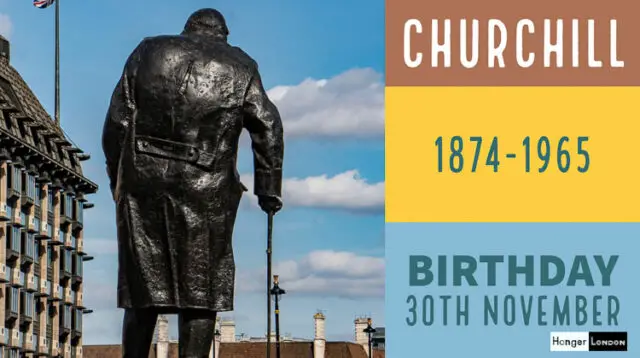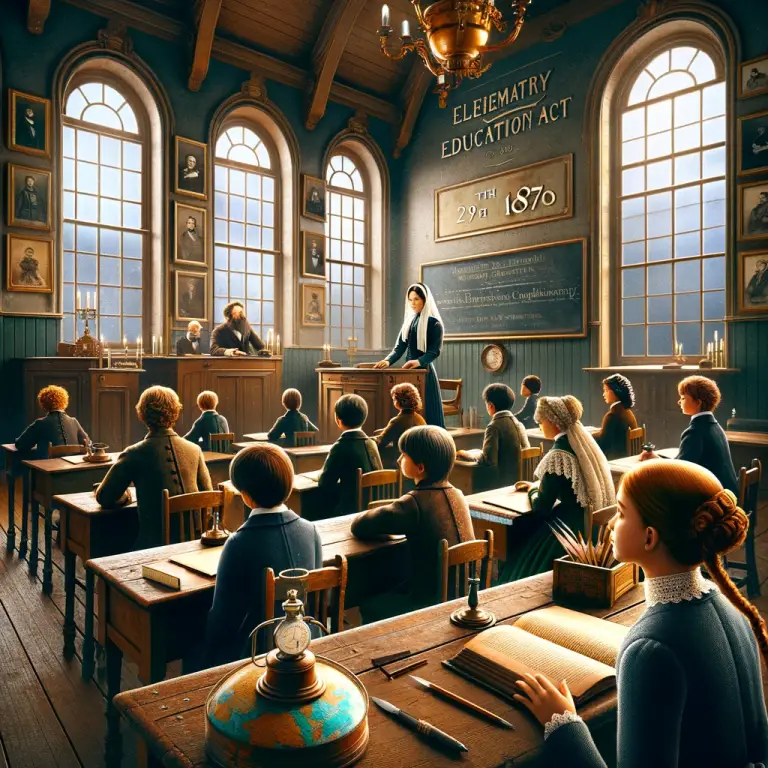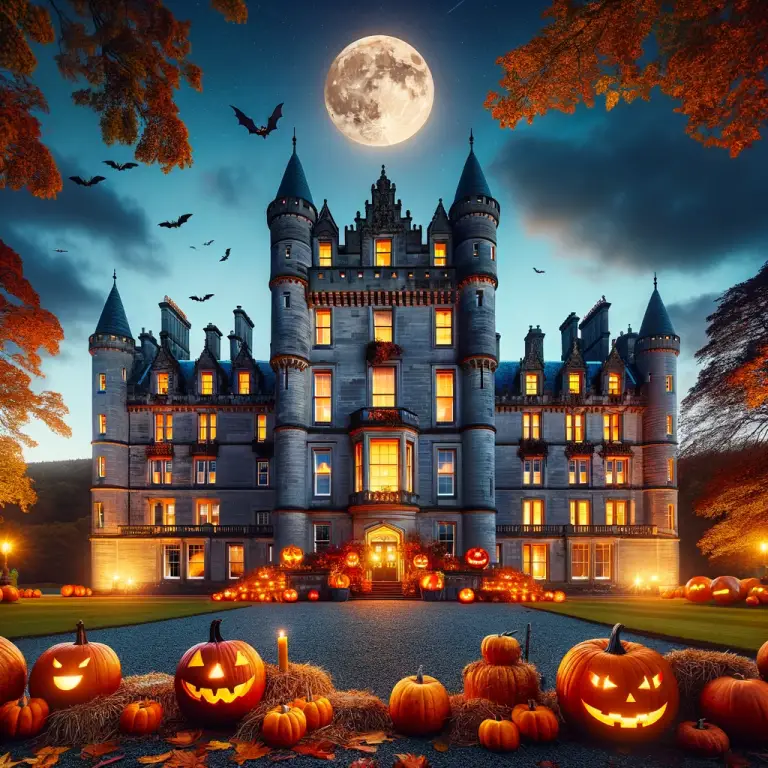The ascent of Churchill, soldier, writer, politician, statesman
Winston Churchill, one of the most celebrated leaders in British history, was born on November 30, 1874, at Blenheim Palace, a magnificent stately home in Oxfordshire, England. The reasons behind Churchill’s birthplace are tied to his family’s history, as well as to the political and social context of the time.
To understand why Churchill was born at Blenheim Palace, it’s important to start with his family background. Churchill was born into the aristocratic Spencer-Churchill family, which had a long history of serving the British monarchy. His father, Lord Randolph Churchill, was a prominent politician and member of parliament, while his mother, Jennie Jerome, was an American socialite.
Blenheim Palace, the birthplace of Winston Churchill, was built in the early 18th century for John Churchill, the 1st Duke of Marlborough. John Churchill was a military commander who played a key role in the War of the Spanish Succession, and his victory at the Battle of Blenheim in 1704 earned him the gratitude of Queen Anne and the land on which the palace was built.
The Spencer-Churchill family had a strong connection to Blenheim Palace, as it had been given to the 1st Duke of Marlborough in recognition of his military achievements. The family continued to occupy the palace throughout the centuries, and it became one of their primary residences.
Although Winston Churchill spent much of his childhood at Blenheim Palace, he did not have a close relationship with his parents. His father died when he was just 21, and his mother was often absent from his life, pursuing her own interests and affairs. However, Churchill remained fond of Blenheim Palace throughout his life, and referred to it as his “ancestral home.”
Despite political infighting and financial squabbles, Blenheim Palace would forever be known as the home of the Duke of Marlborough. In 1874 John Spencer-Churchill was the 7th Duke of Marlborough and a cabinet minister. John Spencer Churchill the 7th Duke of Marlborough was also Winston Churchill’s paternal grandfather.
John Spencer-Churchill also had a successful career in the military starting in 1842 to becoming Lieutenant in the 1st Battalion of the Queen’s own Oxfordshire Hussars.
Blenheim or Mayfair? The accidental birthplace
Lord Randolph Churchill rented a fashionable house on Charles Street in London’s Mayfair as a base for Churchill’s metropolitan life in the early part of the the1870s’. The impressive buildings along Charles Street were built between 1745 and 1750 by the Carpenter John Philips. The street is just west of Berkeley Square.
This was sure to be the planned birthplace of the soon-to-be-born Winston. If things had worked out that way back in 1874, just imagine Charles Street would now be attracting legions of Churchill fans. Other than the blue plaque would it have become a museum? Beautiful street and worth a visit for any would-be Churchill fan.
The Rough Road Trip to Blenheim
The Randolphs set off for a weekend family trip to Blenheim Palace in the winter of 1874 to attend the St Andrew’s Day ball. At only 61 miles today the trip by car is around 1 hour 40. How quickly were a Horse and Coach back in 1874 to cover this distance? By bicycle, the trip is around 6 hours. What were the roads like? Randolph would later refer to the road trip as a particularly rough horse ride.
This rough trip would soon change the course of the Churchill story.
Churchill was born 2 months early Theory?
Winston Churchill was born in the last quarter of the Victorian era on November 30th, 1874. His parents had married just over 7 months earlier on the 15th of April 1874 in Paris.
Society in general back in the 1800s had different views on having children out of wedlock, doing the maths, and the due date was January 1875. We are told the birth was indeed unexpected and also 2 months early. The Times Newspaper at the time, published the story that Randolph’s new arrival was delivered unexpectedly and very early.
What evidence is there the birth was 2 months early? The accounts of the birth are fairly consistent in terms of the location, following the well-known line that Churchill was born unexpectedly and delivered in an emergency situation at Blenheim. The location may not be widely known as it was said to be the cloakroom near the entrance of the palace. There is not too much to lean on in regard to the actual due date.
What we do know, is that Lady Randolph’s own physician was contacted to come quickly to Blenheim, but due to the timetabling of Victorian railways was unable to make it until a day after Churchill was born. We can only conclude that the birth was indeed unexpected.
Sir Winston Leonard Spencer Churchill KG, OM, CH, TD, DL, FRS, RA Birthplace: Blenheim Palace
Childhood Adventures and Escapades
- Tree Climbing Incident: As a child, Churchill was known for being quite rambunctious. He once fell from a tree in the Blenheim Palace grounds, hurting himself rather severely. It was one of the several accidents he had as a child which showcased his adventurous spirit.
- Butterfly Hunting: Churchill had a fascination with butterflies. He would often hunt butterflies in the vast gardens of Blenheim Palace. His interest in butterflies continued into his adult life, and he even attempted to repopulate the British butterfly species in his Chartwell home.
Artistic Inspiration
- Painting the Landscapes: Churchill was an avid painter, finding solace in the activity during turbulent times in his political career. The beautiful landscapes of Blenheim Palace provided ample inspiration for his artwork, and he painted several scenes capturing the grandeur of the palace and its surroundings.
Sentimental Attachments
- Proposal: Churchill proposed to his future wife, Clementine Hozier, in the Temple of Diana within the palace grounds, showcasing his deep sentimental attachment to Blenheim.
- Personal Retreat: Throughout his life, Churchill often visited Blenheim Palace to find comfort and solitude, especially during trying times in his political career. The palace served as a place of personal retreat where he could rejuvenate and find inspiration.
Later Life and Legacy
- Grave Site: Winston Churchill chose to be buried in the family plot at St. Martin’s Church in Bladon, a small village on the Blenheim estate, signifying his lifelong connection to Blenheim Palace.
- A Lifelong Muse for Writings: Churchill, a prolific writer, often drew from his childhood memories and experiences at Blenheim Palace in his writings, painting vivid pictures of the palace’s grandiosity and its serene landscapes in his prose.
Blenheim Palace During World War II
A Home for Evacuees
- Evacuee Shelter: In the early stages of WWII, Blenheim Palace served as a shelter for hundreds of evacuees, mainly children who were moved from the cities to the countryside to escape the Blitz.
- School Shelter: It not only hosted individuals but also opened its doors to house the Malvern College for boys when the school buildings were requisitioned for the war effort.
Military Training and Hospital
- MI5 Training Ground: Parts of Blenheim Palace and its estate were used for secret MI5 training exercises. Agents were trained in a variety of skills including sabotage and wireless operation in the palace grounds.
- Hospital for Wounded Soldiers: During the war, sections of the palace were converted into a hospital to care for wounded soldiers. This was part of a broader effort during WWII where many stately homes were used as makeshift hospitals to cope with the surge in wounded servicemen.
Winston Churchill and Blenheim Palace During WWII
- Strategic Discussions: While there is limited documented evidence, it is believed that Churchill used the palace for certain strategic discussions and meetings, leveraging its relative seclusion to maintain confidentiality during crucial wartime deliberations.
- Personal Visits: Churchill’s visits to Blenheim during WWII are not well documented, hinting that they were not frequent or public. His role as the Prime Minister and the demands of the war effort would have limited his ability to visit the palace, which was more a place of personal sentiment than of strategic importance.
- Retreat and Reflection: Despite the heavy demands of his role during the war, it is possible that Churchill might have visited Blenheim Palace for short periods to retreat and reflect amidst the turmoil, given his deep personal connection to the place.
Post-war Period
- Recognition of Connection: After the war, Winston Churchill’s connection to Blenheim Palace was recognized and celebrated, with the palace becoming a place to acknowledge his legacy.
Concluding Thought on Churchill’s Birthplace
One could conclude Churchill’s birth was not exactly 2 months early nor was it particularly planned to take place at Blenheim.
The theory questions the official version that he was born in the grandeur of a palace bedroom, highlighting the tendency of high-profile individuals or their families to possibly manipulate or embellish facts to create a more auspicious or grandiose personal narrative.
While it is largely accepted that Churchill was born in Blenheim Palace, the exact circumstances around his birth remain a bit cloudy with different narratives floating around. Some conspiracy theories even go as far as to suggest a cover-up of the actual events surrounding his birth, hinting at a scandal or an attempt to conceal something untoward that could potentially tarnish the family’s reputation.
One thing that one cannot deny, is what an entrance to the world Blenheim provided, only to be matched 90 years later when he departed on the 24th of January 1965.
When measuring Churchill’s life and achievements it is testimony to what he went on to achieve that his family connection to the Duke of Marlborough, his birthplace at Blenheim is a mere footnote in the Churchill story, what a footnote.
The bedroom in Blenheim Palace where Lady Randolph Churchill gave birth is open to visitors at Blenheim Palace https://www.blenheimpalace.com/. You will have to visit the palace and perhaps ask the burning questions this post has raised – Do feed back and comment below on your findings.
The End of the Beginning
The Lord Mayor’s Luncheon, Mansion House, “The End of the Beginning”, November 10, 1942
Now this is not the end. It is not even the beginning of the end. but it is, perhaps, the end of the beginning. Henceforth Hitler’s Nazis will meet equally well armed, and perhaps better armed troops. Hence forth they will have to face in many theatres of war that superiority in the air which they have so often used without mercy against other, of which they boasted all round the world, and which they intended to use as an instrument for convincing all other peoples that all resistance to them was hopeless.
Winston Churchill, British Prime Minister November 10 1942
Map of Blenheim Palace
Blenheim Palace, West Oxfordshire, South East, United Kingdom







